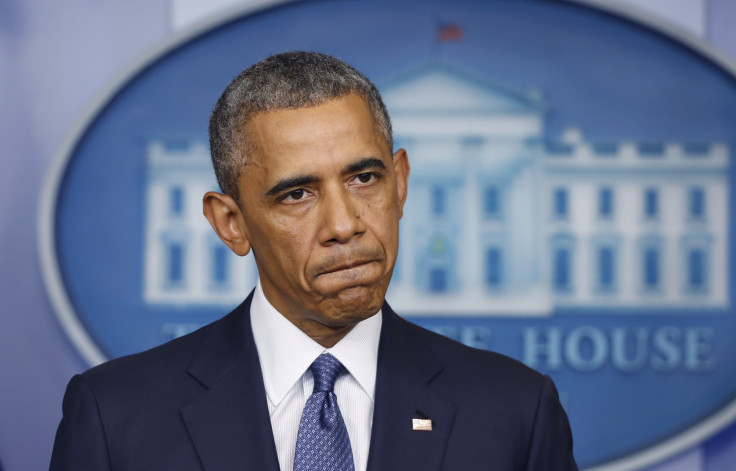Obama Ebola Virus: Is His Plan To Fight The Outbreak Too Late?

President Barack Obama is expected to announce a 3,000-troop commitment to Africa Tuesday as part of a plan to contain the Ebola outbreak on the continent. But some experts fear that the president’s plan, which comes after pleas from Liberia and the World Health Organization, may be too late.
“I'm very distressed,” Laurie Garrett, senior fellow for global health at the Council for Foreign Relations, told the Hill. “I don't think we're even close to playing catch up, much less mount a response that will get us ahead of the virus.” She was also concerned that airdropped supplies might make its way onto the black market and that there’s no centralized oversight of the Ebola response.
J. Stephen Morrison, senior vice president at the Center for Strategic and International Studies, agreed.
“The mobilization that is happening is coming late, and it's coming while exponential growth of the virus itself is just outstripping everyone,” he said. “The collapse of security and flight access, the closure of borders, the regression of the economy, the fear of the people — all of those things create this absolutely formidable environment.”
White House press secretary Josh Earnest countered criticism that the U.S. hasn’t done enough to respond to Ebola, which Obama earlier called “a national security priority.” “The United States responded pretty aggressively to this in March, when this outbreak was first reported,” he said. “And since that time, our assistance has been steadily ramping up.”
As of last week, there were 4,784 Ebola cases in West Africa and 2,400 deaths. Obama is set to unveil the details of his plan, which includes building 17 medical treatment centers and training for thousands of health-care workers, at the Centers for Disease Control and Prevention in Atlanta. Most of the 3,000 medical military personnel being sent to Africa will be in Liberia, a country that was founded by descendants of freed American slaves. It’s also the nation that has been hardest hit with Ebola.
The World Health Organization said it would need 500 to 600 medical experts and 10,000 local health workers if the number of Ebola cases continues to rise.
A senior administration official told Reuters that Obama’s proposal will “ensure that the entire international response effort is more effective and helps to ... turn the tide in this crisis.”
A military control center will be set up in the Liberian capital of Monrovia as part of the plan. Obama will further explain the military’s role during his Atlanta visit.
"The significant expansion that the president will detail ... really represents ... areas where the U.S. military will bring unique capabilities that we believe will improve the effectiveness of the entire global response," the administration official said.
Cuba and China have also pledged to pitch in, with both countries sending medical staff to Sierra Leone.
© Copyright IBTimes 2024. All rights reserved.












